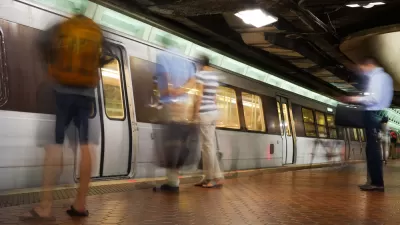Observers express cautious optimism as countries come together on climate goals, but developing nations say they need more support to mitigate the impacts of climate change already in progress.

David Knowles and Ben Adler describe some key takeaways from the COP26 climate conference, which COP26 President Alok Sharma called a "fragile win" for countries seeking to mitigate climate change and slow global warming.
Activists express concern about the nonbinding nature of the pledges made at the conference and the revelation that some countries have been misreporting their emissions data, throwing reductions goals into question.
Developing nations and activists also remain concerned that climate finance is disproportionately tilted toward measures to help developing nations lower emissions — something that most benefits rich countries, since it lowers climate change — and not for preventing, or simply being reimbursed for damage from climate change impacts that are already happening or will be soon.
Yet despite the lack of an enforcement mechanism, Knowles and Adler write that advocates remain hopeful that the conference yielded some promising results that could move the needle on reducing greenhouse gas emissions and keeping global warming below 1.5 degrees Celsius, with over 130 countries pledging to reach net-zero emissions by 2050. Some countries signed onto 'side deal' agreements to cooperate on climate change goals, while all participants agreed that eliminating fossil fuels and ending deforestation should be at the forefront of their efforts. The conference also established rules for international carbon markets that should close loopholes and implement more rigorous measurement mechanisms.
FULL STORY: 5 takeaways from the Glasgow climate change conference

Alabama: Trump Terminates Settlements for Black Communities Harmed By Raw Sewage
Trump deemed the landmark civil rights agreement “illegal DEI and environmental justice policy.”

Planetizen Federal Action Tracker
A weekly monitor of how Trump’s orders and actions are impacting planners and planning in America.

The 120 Year Old Tiny Home Villages That Sheltered San Francisco’s Earthquake Refugees
More than a century ago, San Francisco mobilized to house thousands of residents displaced by the 1906 earthquake. Could their strategy offer a model for the present?

In Both Crashes and Crime, Public Transportation is Far Safer than Driving
Contrary to popular assumptions, public transportation has far lower crash and crime rates than automobile travel. For safer communities, improve and encourage transit travel.

Report: Zoning Reforms Should Complement Nashville’s Ambitious Transit Plan
Without reform, restrictive zoning codes will limit the impact of the city’s planned transit expansion and could exclude some of the residents who depend on transit the most.

Judge Orders Release of Frozen IRA, IIJA Funding
The decision is a victory for environmental groups who charged that freezing funds for critical infrastructure and disaster response programs caused “real and irreparable harm” to communities.
Urban Design for Planners 1: Software Tools
This six-course series explores essential urban design concepts using open source software and equips planners with the tools they need to participate fully in the urban design process.
Planning for Universal Design
Learn the tools for implementing Universal Design in planning regulations.
Clanton & Associates, Inc.
Jessamine County Fiscal Court
Institute for Housing and Urban Development Studies (IHS)
City of Grandview
Harvard GSD Executive Education
Toledo-Lucas County Plan Commissions
Salt Lake City
NYU Wagner Graduate School of Public Service





























